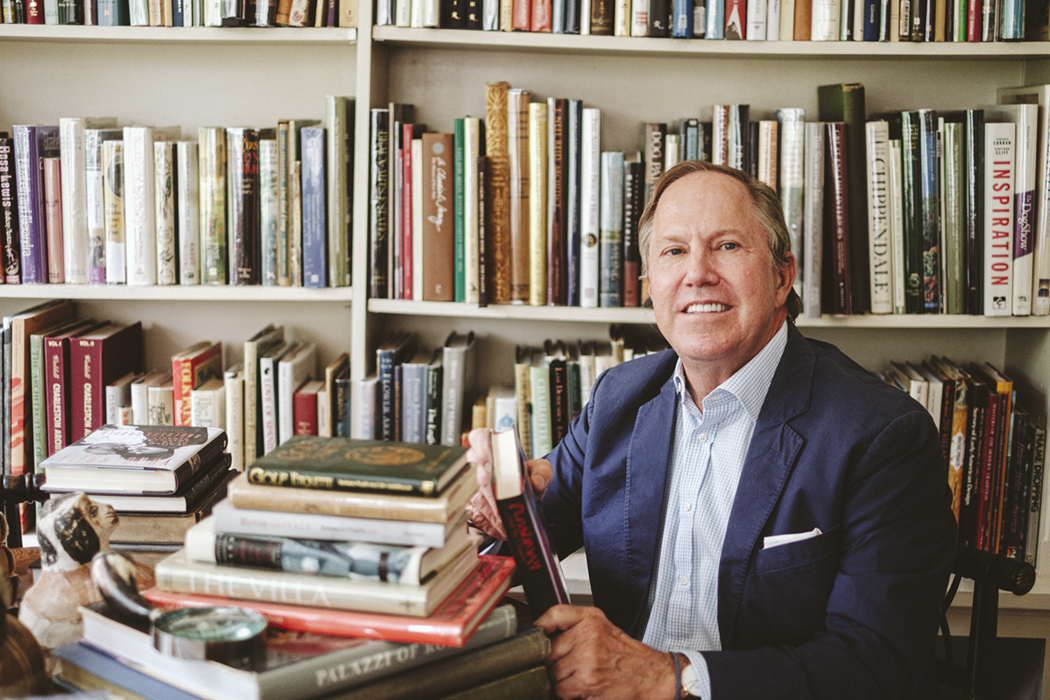Thomas Jefferson wrote only one book during his lifetime, Notes on the State of Virginia. He published it while serving as Minister to France, first anonymously in a limited private edition in 1785, then in a public edition in 1787. It’s a monumentally important work, offering a window into Jefferson’s thinking about democracy, religion, race, and more. As you can imagine, it’s not easy to get your hands on one of those first editions. If you can find one at all, a well-preserved copy even of the 1787 edition will run you tens of thousands of dollars.
Kinsey Marable has owned several.
Marable is a bookseller of an unusual sort. He has no storefront. He lives on a farm just outside of Charlottesville, hunting and collecting out-of-print books for his buyers from a cottage on the property. He usually trades not in single volumes (though he’s more than willing to seek out a single volume if someone needs it), but in whole collections, whole libraries.
The libraries he builds are studiously composed, ranging from a few dozen books to a few thousand. His specialty is in what he calls “country house libraries,” focused on books about architecture, sport, food, drink, and the like. But he’ll accept any challenge. He’s built libraries about true crime and libraries about alchemy. He’s working now on one collection entirely devoted to Italy, and another collection—3,000 volumes—about democracy and liberty. He has even put together a library for Oprah Winfrey, consisting of first editions of every single Pulitzer-winning novel.
Marable began his professional life as a securities trader, of all things, for Goldman Sachs. The job took him often to London, where he discovered the joys of combing out-of-print bookshops for unusual volumes. Books gradually grew more interesting than finance, so he left Goldman, and under the mentorship of the legendary Jane Stubbs, who ran an eclectic and beloved art and book shop in New York, opened up his own shop in Georgetown selling books and library furniture.
Those years gave him his practical education in the book business. “I had no background in this,” Marable recalls. “I was interested in books, I liked buying books for myself, but the only way I really learned was by traveling, and traveling a lot, to bookshops—all up and down the East Coast, a lot in England, even to France a couple of times, just to buy books.” He sources many of his books online these days (though more often he buys whole libraries from others), but of course that wasn’t an option when he started. And Marable is grateful for that. “By spending all this time going bookshop to bookshop, I found this huge range of books I never knew existed. It was the visual, looking through these books all through the country. Otherwise, I don’t know what I would have done. I don’t think I would have been able to do it.”
